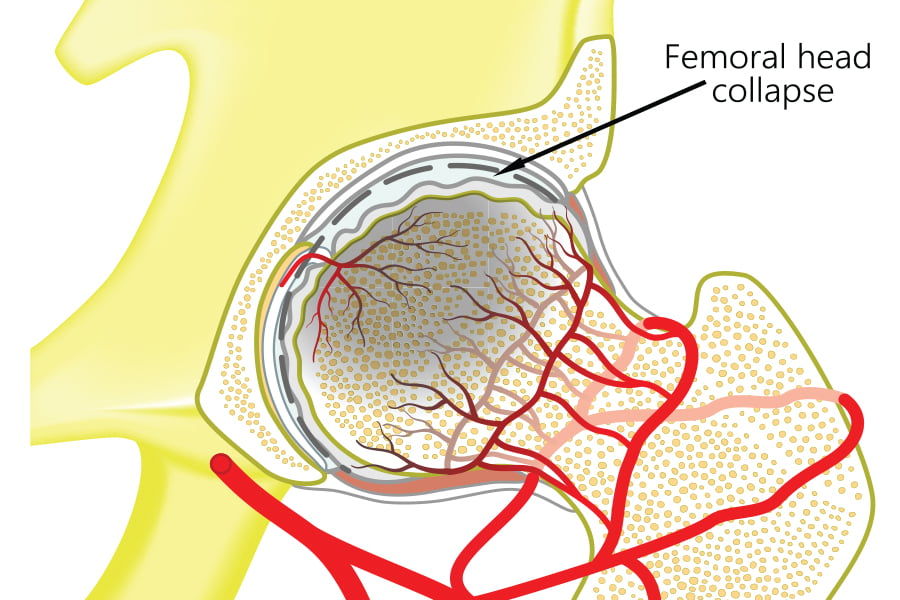
What is avascular necrosis?
Avascular necrosis, otherwise known as osteonecrosis, is a condition in which bone tissue dies from a lack of blood supply. When tissue dies, there is nothing to replace or back it up, so the bones begin to develop tiny breaks in the bone. Eventually, the bone collapses and can be very painful.
Avascular necrosis (AVN) usually develops in the hip joint, since the hip area is where most of your weight is concentrated and it does not have a good backup supply of blood vessels. This makes it harder for your hip to withstand pressure from weight. However, AVN can affect any joint in the body.
What are the causes?
Anyone can be affected by AVN, but it is most common for people between the ages of 30 and 60. Some of the main reasons AVN develops are as follows:
- Fractures or dislocations: People who have dislocated or fractured a bone are more likely to develop AVN because those events can break up the normal blood flow to the bone.
- Long-term steroid use: People who use steroid medications often to treat other diseases may develop AVN. There are no known correlations between AVN and steroid injections that treat arthritis, but some with oral steroid use.
- Excessive use of alcohol and tobacco: Alcohol abuse damages blood vessels, and smoking causes blood vessels to constrict, which limits the amount of blood flow to the joints.
- Additional medical diseases: Other medical problems can hinder blood supply as well, which can eventually lead to AVN, including leukemia, sickle cell diseases, and HIV infection.
What are the symptoms?
Avascular necrosis can be difficult to discover because it shows no symptoms in its early stages.
As AVN gets worse, these are the stages of pain you will begin to feel:
- Mild or severe pain in and around the joint
- Groin pain that spreads to the knee
- Pain when putting weight on the joint
- Pain when lying down on the joint
- Severe pain that limits movement
How do you treat avascular necrosis?
The goal of AVN treatment is to prevent further bone loss and reduce pain. The best ways to treat it are through medications and physical therapy. Some drugs that treat osteoporosis and that lower cholesterol can also treat AVN.
End-stage AVN, however, may only respond with surgery. If you are at risk of total bone collapse, your doctor may recommend a bone graft or an osteotomy. If your hip joint has collapsed, you will likely need a hip replacement.
Think you may have avascular necrosis? Please contact our office to schedule a consultation. Our surgeons treat patients with AVN often and want to serve in any way they can.